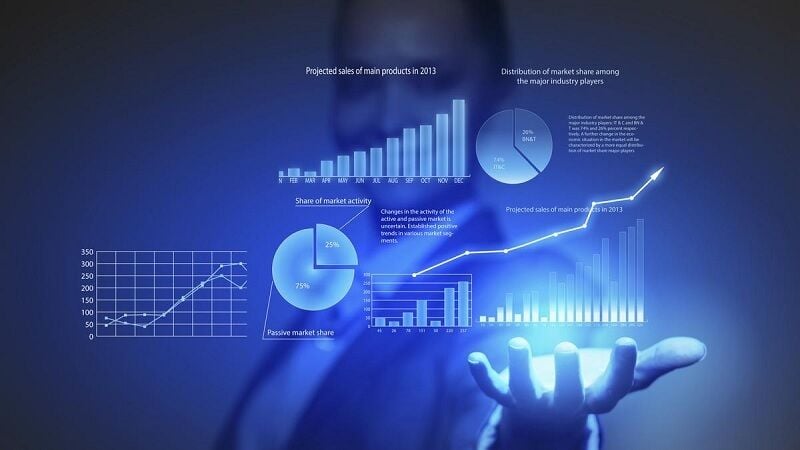How big data is shaping business decisions

The paradigm of the contemporary digital era, the term big data has evolved from a mere buzzword to a critical determinant, influencing every quarter of business operations. It is restructuring the process by which decisions are rendered, transitioning from instinctual and conjectural considerations to strategies rooted deeply in empirical data. This shift represents not a transient wave, but an imperative component of current business strategy.
The pervasive power exerted by big data extends to mould business intelligence, catalyses innovation, and facilitates efficacious risk management. It forms the underpinning of digital transformation, augmenting user experiences and directing business decisions on an unprecedented scale.
This scholarly discourse presents an in-depth investigation into the integral ways big data is redefining business decision-making in the contemporary context. Ranging from the assimilation of big data technologies to the core objectives of its employment, this exploration shall dissect how this paramount factor is dramatically reshaping the business milieu. Brace yourselves as we embark on an enlightening foray into the realm of big data.
The role of big data in modern business

Big Data solidifies its role in modern business by underpinning decision-making processes and powering operational efficiency and productivity. Let’s explore how it’s become an integral part of a company’s strategic framework.
Impact on decision-making
Big Data has revolutionized decision-making in businesses. By continuously harnessing data, corporations get unique insights that facilitate unbiased, informed choices. Advanced analytics and Machine Learning algorithms have emerged as pivotal tools in this transformative process, aiding in the creation of solid decision-making frameworks. For instance, Hendstein and Katsus’ research pioneered a Big Data Analytics methodology that uses algorithms like RandomForest and Artificial Networks to forecast export volumes utilising extensive industry data.
Studies show that the use of Big Data not only bolsters strategic analysis and forecasting but also significantly enhances decision-making merit. It’s clear then, in this information age, Big Data isn’t just changing business strategies, but it’s fundamentally altering how businesses understand and interact with the world.
Improving efficiency and productivity
There’s no denying that Big Data’s influence extends to enhancing the productivity and efficiency of businesses. By integrating Big Data, corporations can manage all business functions right from analysing transaction footprints to assessing customer complaints and product reviews effectively. This vast pool of information empowers businesses to identify areas of improvement and optimise their processes, leading to extend cost savings and improved productivity.
Furthermore, Big Data takes customer experience to another level. By comprehending customer behaviour through it, businesses can understand customer interactions better, shape marketing strategies, and ultimately improve customer relations. Undoubtedly, Big Data’s pivotal role is not confined to decision-making but extends to the heart of how a business operates.
In the evolving digital landscape, embracing a Big Data-driven culture can equip businesses to leverage their full potential. And as Big Data continues to grow and transform, it will undoubtedly continue shaping business decisions and strategies in the foreseeable future.
Benefits of data-informed approaches

Employing data-informed approaches provides an unrivaled advantage in the contemporary corporate climate. Utilizing big data to augment decision-making processes and to enrich customer interactions confers substantial benefits onto enterprises. We shall probe further into how big data contributes value by refining market intelligence and customization of client encounters.
Enhancing market insights
Big data has engineered a seismic shift in developing market insights. No longer are businesses restricted to analyzing a subset of data; they’re now equipped to delve into vast quantities of data in real time. This enables not only a clearer understanding of existing market dynamics but also predictive insights into future trends. For instance, big data analysis can strengthen competitive positioning, bolster cost leadership strategies, and augment focus strategies. Businesses can therefore strategically allocate resources, pinpoint areas requiring enhancement and even achieve cost leadership in the market by harnessing the power of big data.
Customers smile personalisation is key
how we can make our customers’ experiences even better. Get this – it’s all about the personal touch. Yep, that’s right. Companies today are turning to awesome big data analytics to really get to know their customers inside and out. This helps companies understand the likes, dislikes and difficulties of their precious customers.
Big data analytics can show up issues unique to each customer. With that, we can tailor our product enhancements, roll out perfect company strategies, and launch all the right marketing campaigns that our customers will love.
Best part By predicting what our customers need or prefer, we can solve problems before they even arise – talk about being proactive! This makes our customers feel valued and understood. So, it’s clear as day that big data analytics really helps us connect deeper with our customers. After all, a happy customer is a returning customer, right.
Challenges in big data integration
Now that you understand how Big Data shapes business decisions, it’s necessary to address potential hurdles. Two primary challenges crop up frequently: ensuring data security and privacy, and overcoming data silos and integration issues.
Upholding data security and privacy
Pertaining to the realm of Big Data, one grapples with enormous quantities of information, a portion of which carries considerable sensitivity. The equilibrium between employing this data while concurrently honoring requisite privacy and security concerns presents a substantial hurdle. Corporations must deftly steer through intricate data defense legislation, and it is incumbent upon them to ensure that the ethical manipulation of consumer data stays at the forefront of their priorities. The uttermost safeguarding of sensitive data is essential to prevent any infraction of individuals’ privacy. Moreover, it is incumbent upon organizations to implement rigorous security protocols to preclude data breaches and unauthorized intrusion. Therefore, while Big Data propels business determinations, it equally necessitates an elevated degree of security and privacy deliberation.
Overcoming data silos and integration issues
Another notable challenge in integrating Big Data into business models is data silos. These are repositories of fixed data that remain under the control of one department and are isolated from the rest of the organization. Data management practices are often disjointed and siloed within departments, hindering the efficient consolidation and simplification of data. Addressing this issue is no small task. It requires a concerted effort to harmonize digitization efforts across the organization, ensuring a cohesive approach to Big Data management. Integrating and managing the variety of data formats and sources is a complex task requiring strategic alignment and efficient data oversight policies.
The path of integrating Big Data into decision making is studded with challenges concerning data privacy, security, silos, and integration issues. Yet, overcoming these challenges is crucial to reaping the strategic advantages of Big Data.
Future trends in big data and business decisions

As you navigate the ever-evolving business landscape, shifts in Big Data’s role reflect growth and transformation in the strategic decision-making process. Let’s delve into the rising trends impacting this relationship.
The rise of predictive analytics
Predictive analytics harness the power of Big Data, marrying statistical models and machine learning algorithms. It allows businesses to identify future market trends, anticipate demands, and make accurate forecasts. It’s like having a crystal ball, revealing hidden patterns and customer preferences, a goldmine for strategic planning. In essence, predictive analytics offers foresight, enabling proactivity in changing landscapes, and offering a firm foothold against competition.
Alright folks, let’s chew the fat about this fancy-shmancy thing called ‘big data’. You’ve probably heard the term enough to know it’s the big kahuna of the tech world and lo and behold, it’s moved from being the flavor of the month to the main course for businesses. .In the ever-changing game of digital business, but bobbing and weaving like a nimble salsa dancer. Bottom line folks: don’t be a stick in the mud. Ride the big data wave to business-bolstering bliss. We’re talking not just keeping your head above water, but channeling your inner Michael Phelps for that winning lap.
Want to no more, Data practices are holding back the automotive industry. Today, our cars are not just vehicles, they’re like smartphones on wheels, loaded with exciting insights into our lives, from habits to preferences and every adventure in between. As we zoom ahead in this digital age, there’s a buzzing conversation about how automakers are handling these data practices.
Latest Thailand News
Follow The Thaiger on Google News:


























